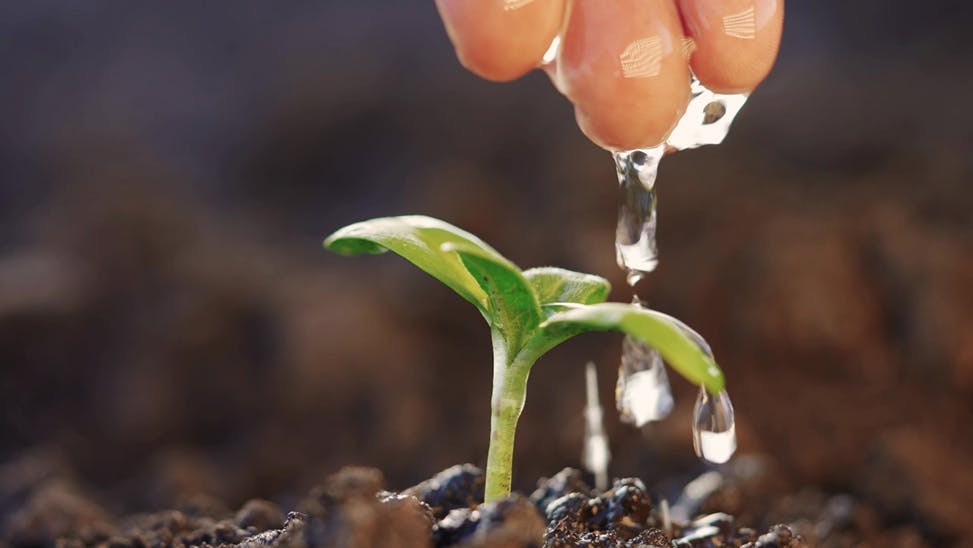

Improving plant resilience and productivity under drought conditions
In the face of climate change and increasingly unpredictable weather patterns, farmers are grappling with the challenge of keeping their crops healthy amid drought conditions. As rainfall becomes less reliable, the quest for solutions that can help plants thrive with less water has become more urgent. One promising answer comes from an unlikely source: seaweed. Specifically, an Ascophyllum nodosum extract from Acadian Plant Health™ is showing great potential in helping crops like tomatoes withstand water stress, leading to stronger growth even when water is limited.
A recent study published in the Journal of Applied Phycology sheds light on how this seaweed biostimulant can help. Researchers found that tomato plants treated with Acadian’s biostimulant technology not only survived drought conditions but thrived. As the study notes, "treated plants had significantly higher plant height and total yield under reduced irrigation compared to control plants," highlighting the potential of this natural solution to enhance crop resilience and productivity.
The Science Behind Seaweed's Success
The secret to the effectiveness of this technology lies in its ability to enhance several critical aspects of plant physiology. Under drought conditions, plants typically close tiny openings in their leaves called stomata to conserve water, which can limit the intake of carbon dioxide needed for photosynthesis. However, the biostimulant technology from Acadian helps maintain a balance by keeping these stomata open just enough to allow for necessary gas exchange, thereby supporting photosynthesis while minimizing water loss. This delicate balance is crucial, as it allows plants to continue growing and producing even when water is scarce.
Moreover, this biostimulant boosts the production of chlorophyll, the pigment responsible for the green colour of leaves and essential for capturing light energy. In the study, treated tomato plants showed increased chlorophyll content, which translates to greener, healthier leaves capable of photosynthesizing more effectively. "The results of the greenhouse study indicated higher stomatal conductance, chlorophyll content, and biomass, for plants grown at moisture levels of 100%, 50%, and 25% of field capacity," the researchers reported. This means that even in less-than-ideal conditions, the plants are still capable of performing their essential functions efficiently.
Beyond these immediate effects, Acadian’s biostimulant technology also promotes more robust growth in both the roots and shoots of the plants. A stronger root system allows plants to dig deeper into the soil for water and nutrients, a critical advantage in dry conditions. Meanwhile, healthier shoots mean the plant can support more flowers and fruit, directly contributing to higher yields.
Strengthening Plant Defenses from Within
In addition to these physical improvements, Acadian’s biostimulant technology fortified plants at a molecular level. The extract activates certain genes that are associated with drought tolerance, enhancing the plant’s ability to cope with stress. It also increases the production of natural antioxidants, which help protect the plant cells from damage caused by stress. According to the study, "the relative expression levels of the marker genes were also significantly increased in treated plants compared to control plants along with increased antioxidant enzymes activities." These internal changes are critical, as they ensure that the plant not only survives but remains productive under challenging conditions.
Implications for Agriculture
The implications of these findings are significant, especially for regions prone to drought. Field tests have shown that tomato plants treated with Acadian biostimulants grew taller and yielded more fruit than untreated plants, even when irrigation was limited. While full irrigation still provides the highest yields, the seaweed-based product allows farmers to maximize their crop production with less water. This makes it a valuable tool for sustainable agriculture, particularly as water becomes an increasingly scarce resource.

As climate change continues to alter weather patterns, innovative solutions like Acadian’s biostimulants offer a ray of hope. By helping crops use water more efficiently and boosting their natural defenses, seaweed biostimulants could play a key role in ensuring food security in a drier, more unpredictable future. For farmers, this could mean the difference between a bountiful harvest and a barren field, making biostimulants not just a supplement, but a potential game-changer in the fight against drought.
Read the full published research here.
